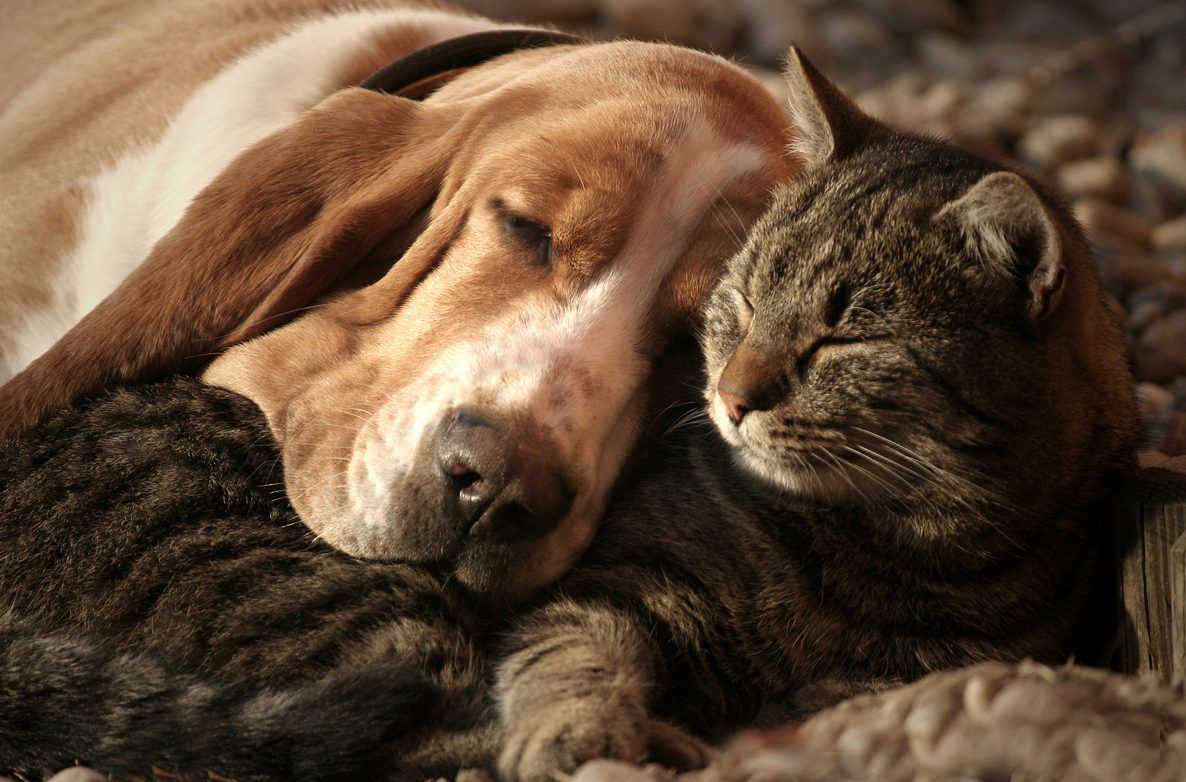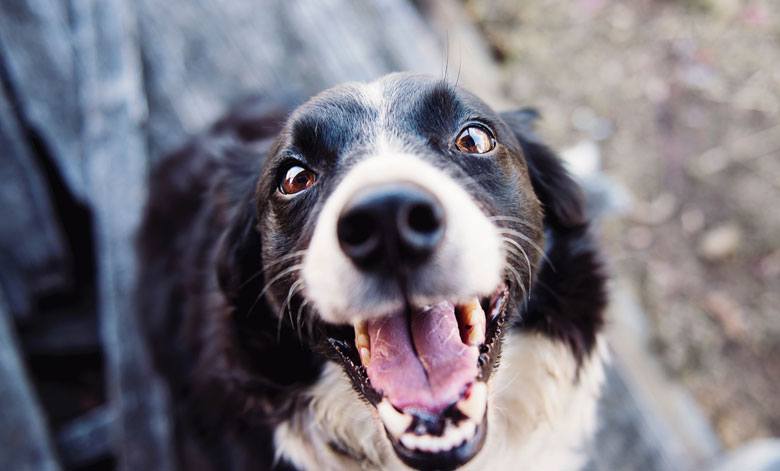Coping With the Loss of a Pet
Death of a Pet — Like Losing a Family Member
If you have experienced the loss of a pet, you know that the bond between humans and animals can be extremely strong. In fact, science has confirmed this. That’s why the grief you may experience with the loss of a pet can be just as intense as what you feel when you lose a human you are close to.
To make matters worse, pet owners are often forced to decide if a pet’s deteriorating health calls for euthanizing the animal. This can add a layer of confusion to the many emotions we feel during this difficult time. For some, the grief will be transitory. For others, grief can be debilitating and long-lasting. Unfortunately, there are no quick fixes for making the pain you feel when you lose a pet go away. But there are things you can do to help cope with the grief you experience over the loss of a pet.
Grief and the Loss of a Pet
The grief you feel over the loss of a pet should never be minimized. Whether the animal was a favorite feline, a faithful dog, or even a little turtle, pet loss can spark deep grief in the people caring for the cherished creature. Even young children experience grief after the death of a pet and may act out their sadness (for more, see our page on Children and Pet Loss). It is important to remember that everyone experiences pet loss differently, so there’s no reason to expect specific behaviors from yourself or others.
2) Allow yourself to grieve.
3) Reach out for help and comfort.
4) Create a ritual.
5) Memorialize your pet.
6) Give yourself a break.
It is common to experience fluctuations in the intensity of your grief for some time. For example, you may think you are coping fairly well when an empty dog bowl or cat toy creates a rush of grief. This is normal — and you shouldn’t expect otherwise. Remember, what you are feeling is completely normal. The Five Stages of Grief is a popular theory to explain how our emotions shift. Awareness of these emotional shifts can help you accept that what you feel is completely normal. To learn more about the Five Stages of Grief, click here.
You may never forget your furry friend, but over time, you will be able to think about him or her without the deep anguish that comes with a recent loss. While everyone has a different approach to healing, there are some things you can do to help heal the pain of losing a pet.
TIPS FOR HEALING THE PAIN OF LOSING A PET
- Give yourself time to grieve:
Don’t minimize your grief. Whether the pet was a favorite feline, a faithful dog, or even a little turtle, the loss of a pet can spark deep feelings of grief. Everyone experiences loss differently, so there’s no reason to expect specific behaviors.
- Reach out:
Turning to a family member, friend, clergy, or support group may give you an outlet for expressing your feelings. Sometimes, just sharing your feelings with others who understand can help. If you want to reach out but aren’t sure where to turn, pet loss hotlines can help. Do not hesitate to contact a professional if your grief over the loss of a pet if you are overwhelmed. Your veterinarian may be able to provide a list of possible places to turn for help.
- Create a ritual:
Today, many people turn to pet funerals and memorial services as part of the grieving process. The activity of planning can be therapeutic for the entire family. While you may not want to hold a full-blown funeral ceremony, creating a ritual may help you say goodbye and offer comfort and closure. Your ritual can be as simple or as complex as you like.
- Memorialize your pet:
Creating a lasting memorial of the time you and your pet spent together helps many people deal with their grief. Some of the most popular ways are creating a photo album, finding a spot for your pet’s remains, or having a special burial spot. The information below on Creating a Lasting Memorial offers some other ideas on how you can create a memorial for your pet. We also have a page dedicated to ways to memorialize your pet.
- Give yourself a break:
There is no need to put yourself on a grief timetable. You should take care of yourself by eating right and getting enough rest. Taking care of your physical and emotional needs will help you heal quickly. Pay attention to your own feelings of loss and be good to yourself.
Helping Children Process the Loss of a Pet
The loss of a pet can be extremely difficult for a child. This is particularly the case if the child has never known a time when the pet was not in his or her life. To make things even more difficult, how a child handles adversity is unique to each one. As a parent or caregiver, you will need to consider the child’s personality and maturity. For more information on how to handle a child’s grief over the death of a pet, visit our Children and Pet Loss page.
Helping a Friend Grieve the Loss of a Pet
The death of a pet affects everyone differently. For many people, a pet is just as important as a human loved one. Feelings of grief — whether for a parrot or a poodle — should be respected. The most important thing you can do is listen.
SAY THIS, NOT THAT! WHEN SOMEONE YOU KNOW LOSES A PET
When helping someone grieve the loss of a pet, it’s best to:
- Give your friend time to recover from their loss. Don’t expect them to resume a normal routine right away.
- Avoid comparing your experiences with pet loss or sharing current stories about your pets.
- Expect tears as a part of grief. Comfort a friend, and don’t minimize the pain.
- Listen! Don’t try to change the subject or distract your friend from memories of their pet.
- Check-in with a regular phone call to boost his or her spirits.
- Send a card or other acknowledgment.
- Ask your friend how he or she would like you to help.


Help Other Pets Accept the Loss of a Pet
If you have another pet in the home, you will need to keep an eye out for behavior resulting from losing its pal. Like people, each animal handles grief in its own way. If you are concerned that your pet may be suffering, consult with your vet. He or she may have suggestions for how to help your animal.
For more information on how to handle an animal’s grief over the death of a pet, visit our Helping Pets Grieve page.
Making Arrangements After the Loss of a Pet
When the time comes for you to say goodbye to your pet, you’ll be faced with a number of decisions. If your pet is ill, you may have to make the difficult choice to euthanize your pet. This is a decision that should be made in consultation with your veterinarian and others in your family. For more information on how to make the hard decision to euthanize your pet, visit our Making the Decision to Euthanize page.
Planning Ahead for the Death of a Pet
While it’s not always possible, planning ahead for your pet’s death may make the process of grieving a bit easier. It will give you time to weigh your options and avoid having to make complex decisions at an emotional time. When the time actually comes, knowing what to expect, what your options are, and how you should proceed can help you focus on the process of grieving rather than having to concentrate on the details that come after the death of a pet.
Prior to your pet’s death, talk with your veterinarian about:
- What can you expect to happen during your pet’s last days?
- How can you help your pet remain comfortable?
- What are your options should it be necessary to consider euthanasia?
- What type of support services does the veterinarian offer?
Talk with your family about:
- How should you handle the pet’s remains? Visit our pet burial versus cremation page.
- How to best memorialize your pet?
- Who might like to visit with your pet before the time comes?
Investigate:
- What support services or groups are available to help you and your family with your grief?
- What options are available for burying or cremating your pet?
- With regard to home burial, what does your local municipality allow?
Creating a Lasting Memorial to Honor Your Pet
Loss of a pet doesn’t mean you have to lose the memories you shared. Many people find that creating a special memorial can help in coping with the loss of a pet because it helps you hold on to the memories and provide a lasting tribute to your pet. Here are just a few ways you can memorialize your pet:
- Hold a funeral or memorial ceremony.
- Plant a tree in your pet’s memory.
- Post an online memorial or obituary.
- Create a special place in your garden with a garden stone or marker infused with your pet’s ashes.
- Find a spot in your home to display a special urn with your pet’s ashes.
- Have your pet’s ashes encased in a piece of memorial jewelry or have a diamond or gemstone made.
- Donate in your pet’s name to an organization that helps animals.
- Have fireworks created from your pet’s remains, or have the remains shot into space.
Acquiring a New Pet after the Death of a Pet
Some people find it helpful to quickly replace their animal. Others prefer to wait or never get another animal at all. Either way, the decision is up to you and your family. You should not feel disloyal to the memory of your pet if you take on another one. You may consider volunteering at an animal shelter to help you decide if you’re ready to take on another pet. If you have other pets in the home, you should also consider the impact on them. If your surviving pet is feeling lonely, a new buddy might help. On the other hand, an older animal may have trouble adjusting if a new family member is introduced too quickly.
The loss of a pet is a significant life event, particularly if the pet has been with your family for a long time. You may be required to handle your own grief as well as help others in your family handle theirs. This can be overwhelming. If you feel like you need help, don’t hesitate to ask. There are many people who have experienced similar losses who can provide support and advice. And by all means, allow yourself to grieve.
Finding the right words to help someone who is grieving for a pet can be challenging. This list can help. What happens when the grief belongs to someone you care about and you want to help? Try this article.
SAY THIS, NOT THAT! WHEN SOMEONE LOSES A PET

GRIEF: DON’T CHEER ME UP!

